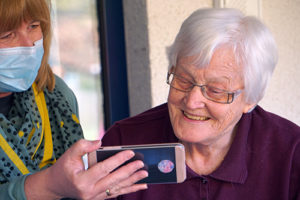Proposed Medicaid Fiscal Accountability Regulation (MFAR) Withdrawn

Thanks to pressure from health and human service nonprofit organizations, including CHHSM, the Centers for Medicare and Medicaid Services announced Sept. 14 that it will not move forward with the proposed Medicaid Fiscal Accountability Regulation (MFAR). If finalized, MFAR would have jeopardized key nursing home financing policies, including life plan community provider tax exemptions and nursing home supplemental payment programs.
In early February, CHHSM, in conjunction with LeadingAge and other human service and faith-based organizations, sent a Call to Action, urging everyone to write to the CMS objecting to the MFAR proposal. LeadingAge reports that almost 4,000 comments were submitted to the Federal Register in response to the proposed MFAR. More than half mentioned life plan communities, continuing care communities, or nursing homes, and many of the submitted public comments came from residents of these communities themselves.
One such community was CHHSM member Good Samaritan Home in Evansville, Ind. According to Board Chair Kay Vaught, had the MFAR proposal gone into effect, Good Samaritan would have lost approximately $1 million in annual funding, severely impacting its ability to serve its residents. Other CHHSM members would have faced equally devastating consequences.
“Our Call to Action encouraging our members to voice their opposition to MFAR seems to have been a contributing factor in the outcome,” says Michael J. Readinger, president and CEO of CHHSM. “Along with other partners, our faith-based advocacy made the difference. Special thanks to all of our CHHSM members whose voices combined to make an impact.”
Announced in November 2019, MFAR would have disallowed provider tax programs and exemptions for life plan communities/CCRCs and other facilities. The proposal could have reduced or eliminated supplemental payment programs that are critical to nursing home financing in many states. These policies would have had dangerous implications for these communities and the older adults who live there.
“When we unite our voices, we can effect change,” says Sandy Sorensen, CHHSM board member and the director of the UCC’s D.C.-based Justice and Witness Ministries. “Advocacy can make a difference!”
Join Our Mailing LIst
"*" indicates required fields
